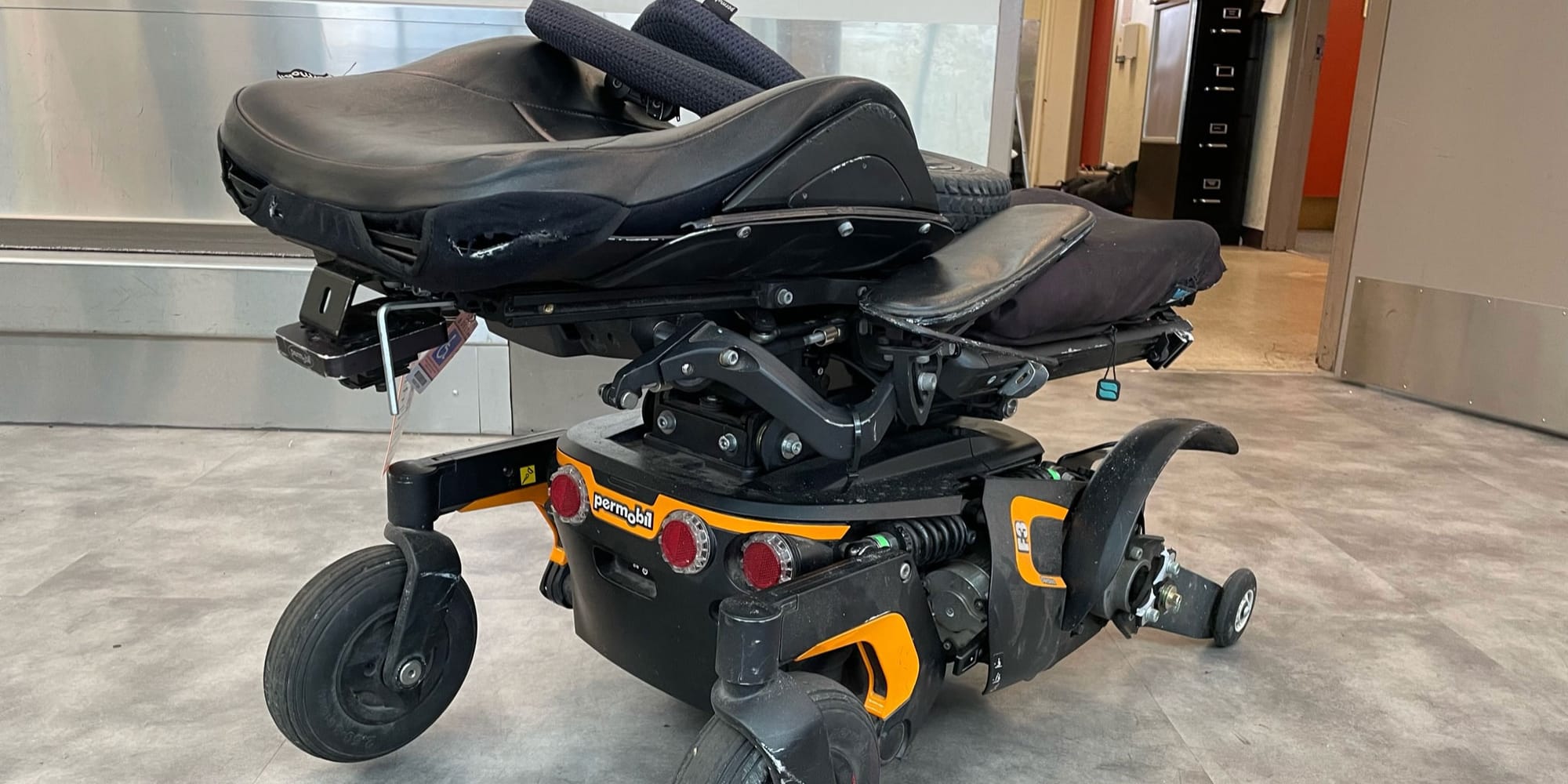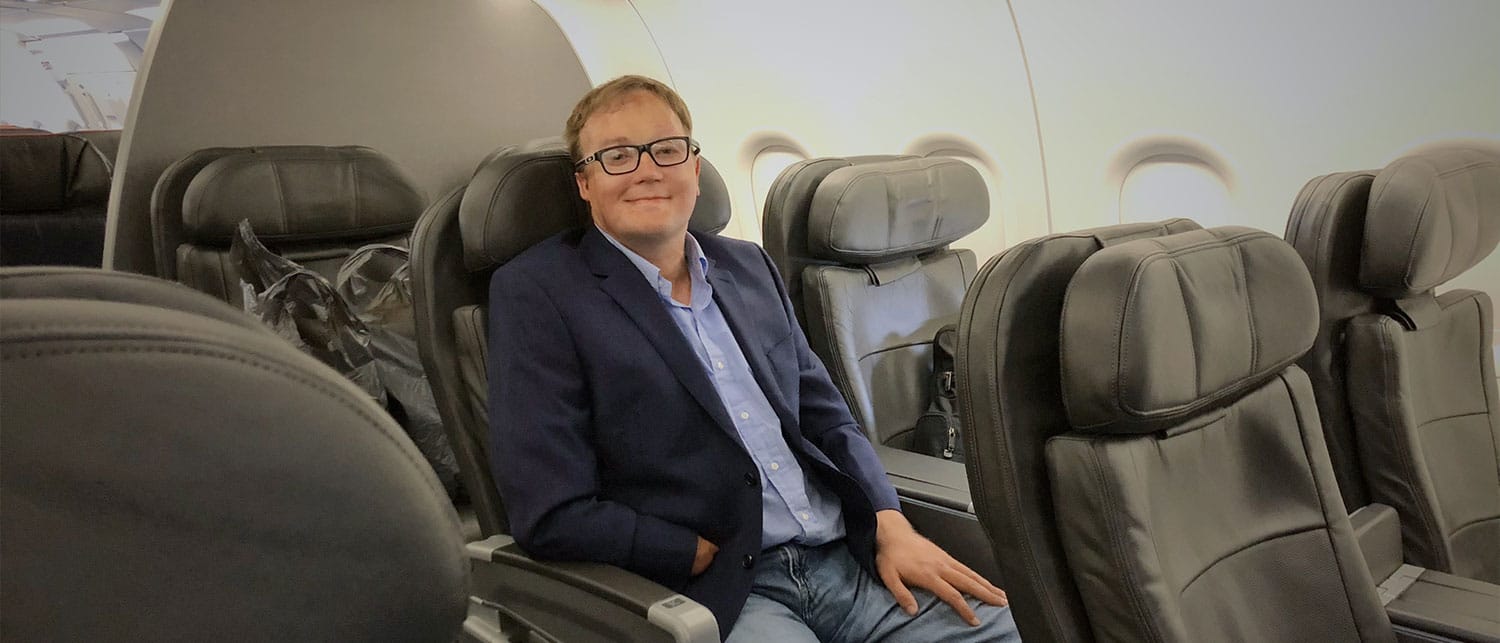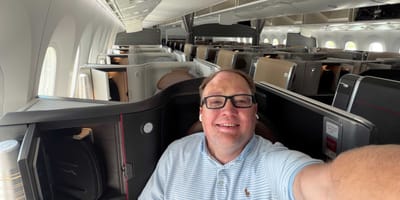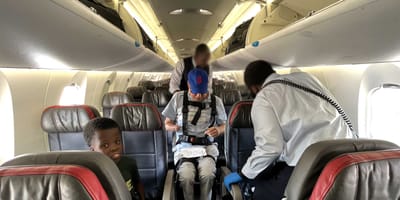Many Wheelchair Travelers and disabled travelers have been alarmed by recent news that the U.S. Department of Transportation (DOT) is temporarily pausing enforcement of key portions of its December 2024 disability regulation, most notably the new rebuttable presumption that airlines are automatically liable when they damage a wheelchair or scooter.
But while this pause weakens protections that the Biden-era DOT, under the leadership of former Secretary Pete Buttigieg, said was designed to strengthen passenger rights, it is important to make the following point unmistakably clear: airlines remain fully responsible for repairing or replacing any wheelchair they damage while it is in their care — up to the device’s original purchase price.
In other words, despite the rollback, your wheelchair is still covered.
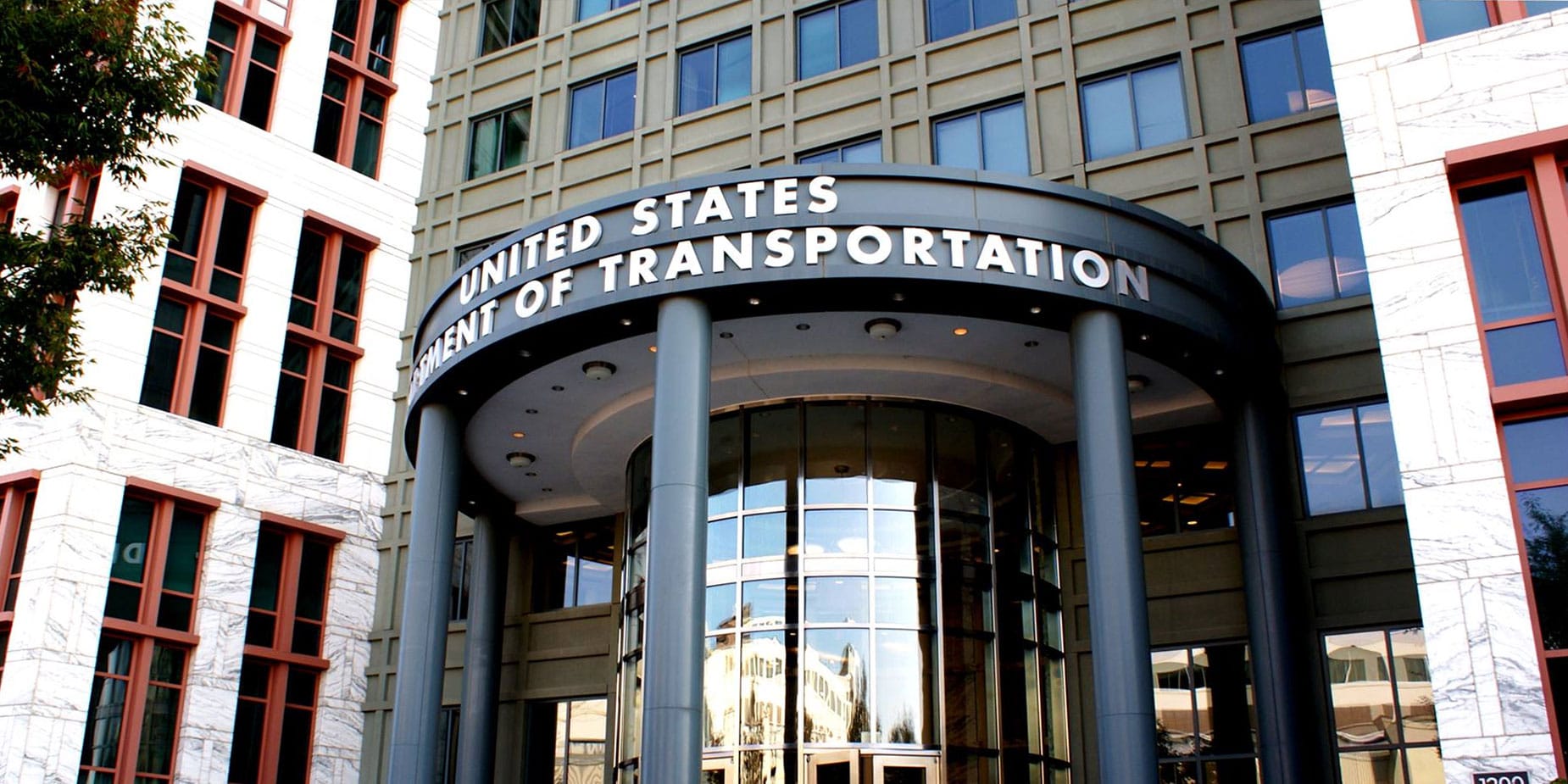
Liability has not changed: Airlines must pay for any wheelchair damage they cause
The DOT’s latest enforcement notice emphasizes that the pause in the presumption of liability does not cancel or reduce an airline’s longstanding obligation to care for assistive devices or to compensate passengers when damage occurs due to the airline’s actions.
Even without the 2024 rule in effect, DOT continues to hold airlines liable for damage as it did historically, which means:
- Airlines must return all assistive devices in the same condition in which they were received.
- If an airline causes damage to a mobility device, they must repair or replace the wheelchair or scooter up to its full original purchase price.
This mirrors previous DOT enforcement practices and remains unchanged during the temporary pause instituted by Transportation Secretary Sean Duffy. The Air Carrier Access Act, which outlines disabled passenger rights and airline responsibilities, remains fully in force.
Hello, I'm John Morris! I work hard to cover the latest news in the world of accessible travel, and publish explainers like this one to help you make sense of the goings-on in the industry. Would you consider supporting my work by becoming a member today?
What the 2024 rule added — and what’s now paused
The December 2024 final rule attempted to strengthen protections by creating a rebuttable presumption of liability, meaning airlines would automatically be considered at fault for any damage occurring while a device was in their custody.
Under that rule, an airline could avoid paying only by proving one of the following:
- Pre-existing damage — The device was already damaged before the airline accepted it.
- Passenger negligence — The traveler’s own actions (such as improper labeling or faulty instructions) directly caused the damage.
- False or fraudulent claims — The damage allegation was fabricated or demonstrably untrue.
DOT is now temporarily not enforcing the new presumption, meaning airlines no longer begin every claim under an automatic assumption of fault.
Other requirements of the rule that have been paused include:
- Enhanced training requirements for baggage handlers and airline assistance personnel or contractors
- Reimbursement of fare difference when a traveler must pay more to fly on an aircraft capable of transporting their wheelchair
To read more about what was included in the December 2024 rule, read my coverage of that here:
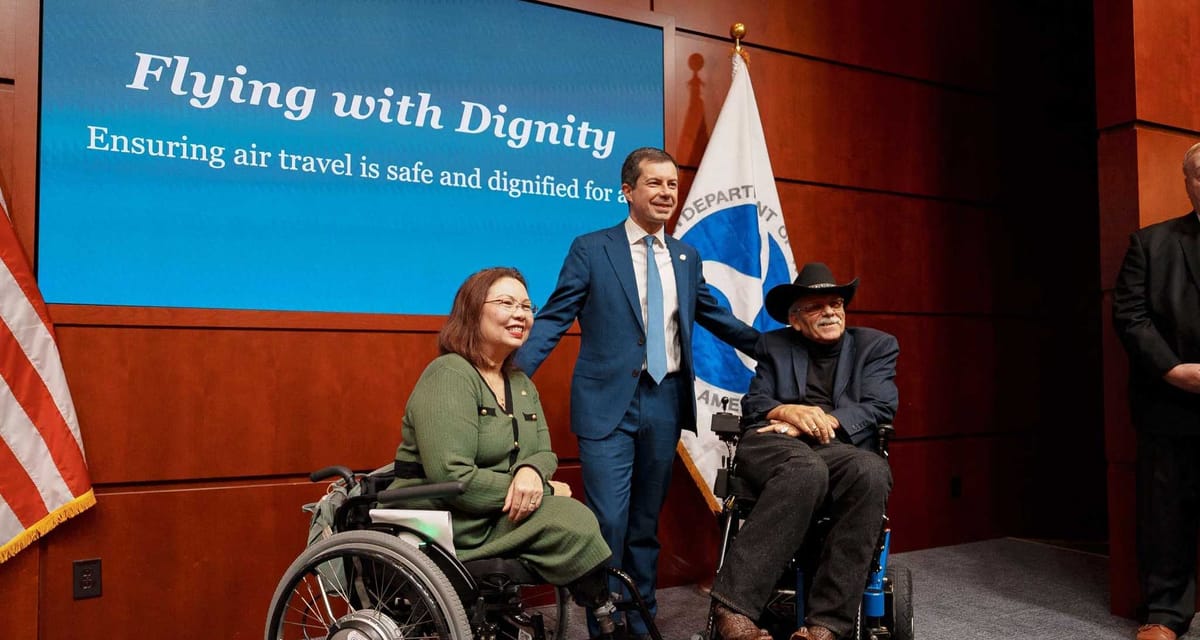
In a recent publication, the DOT stressed that it has not nor will it permit airlines to escape liability for wheelchair damage by citing an “act of God” or other events allegedly beyond their control.
Rain is one "act of God" airlines often claim is beyond their control, but that's not the case — wheelchairs can easily be protected from rainfall.
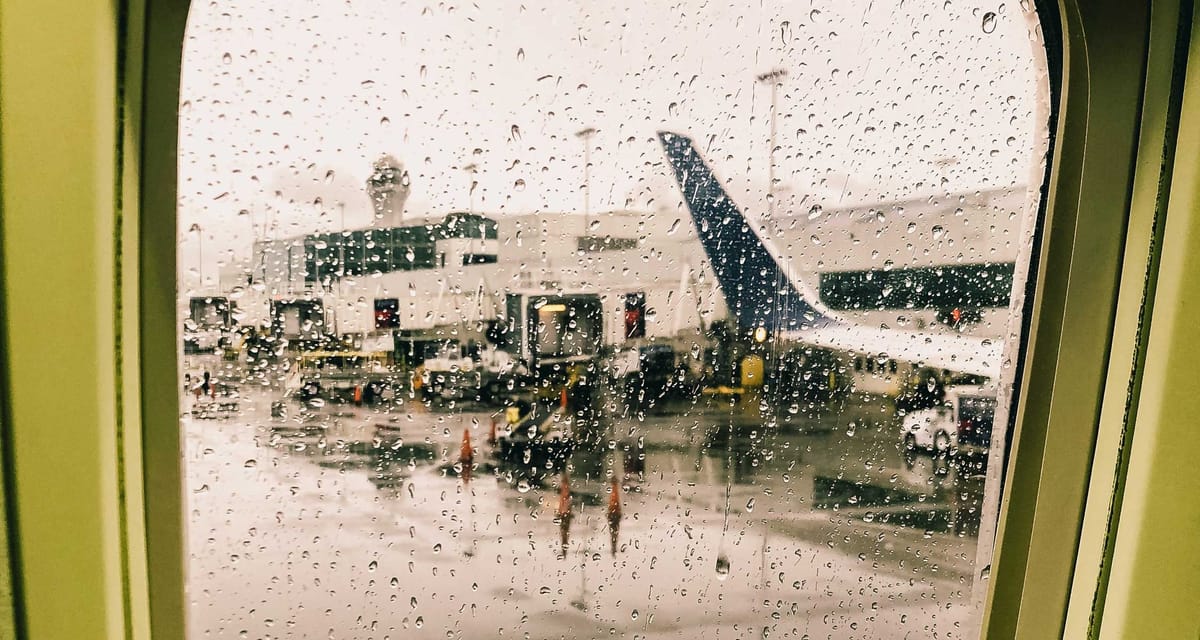
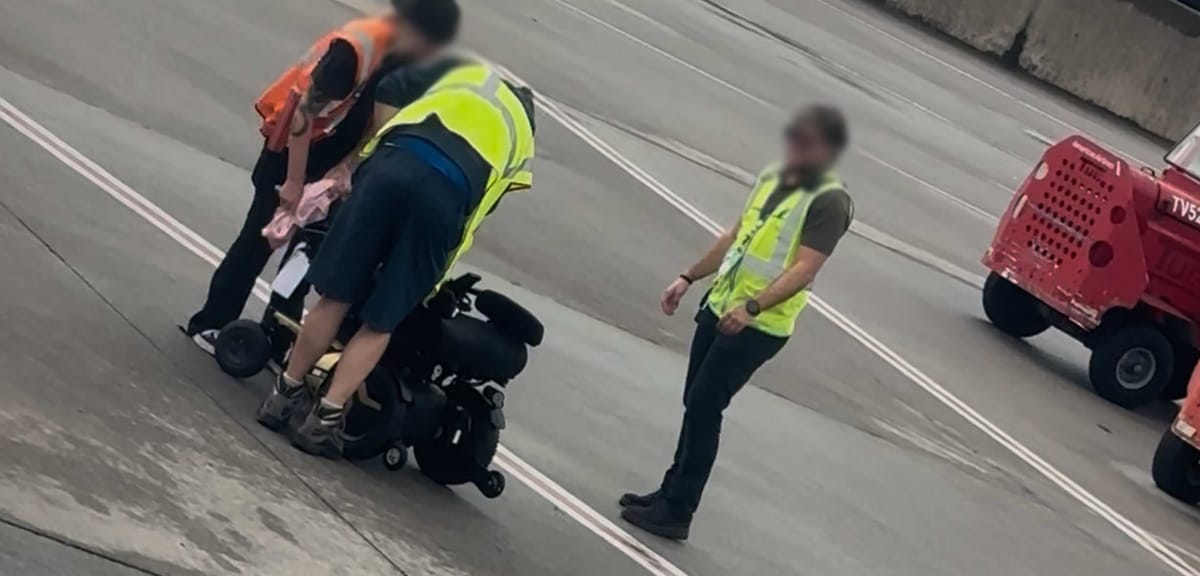
What travelers should do if their wheelchair is damaged
The DOT advises that passengers must continue to follow the established steps when wheelchair damage occurs:
- Report the damage to the airline immediately at the airport.
- Document the damage thoroughly with photos, videos and descriptions.
- File a DOT complaint if the airline refuses to resolve the issue.
Travelers’ rights remain intact, and DOT continues to expect airlines to uphold their responsibilities under the ACAA.
Bottom Line: The new rule is paused, but airlines' liability for wheelchair damage is not
While the DOT’s decision to suspend enforcement of the rebuttable presumption is disappointing, it does not change the fundamental obligation airlines have toward passengers with disabilities:
- Wheelchairs must be returned in the same condition in which they were received.
- Airlines must pay for repair or replacement when they cause damage.
- DOT remains the enforcement authority and its practices from before the 2024 rule still apply.
Despite the change in leadership at the DOT and the pause on the 2024 rule that I described at the time as "restrained" ("underwhelming" would probably have been more appropriate), I remain confident that the critical longstanding ACAA requirements will remain in place. Of course, just as I said during the last administration, "civil rights laws are not worth the paper they are printed on unless they are aggressively and religiously enforced." We probably will not see aggressive enforcement under Secretary Duffy, but I would love to be proven wrong.

